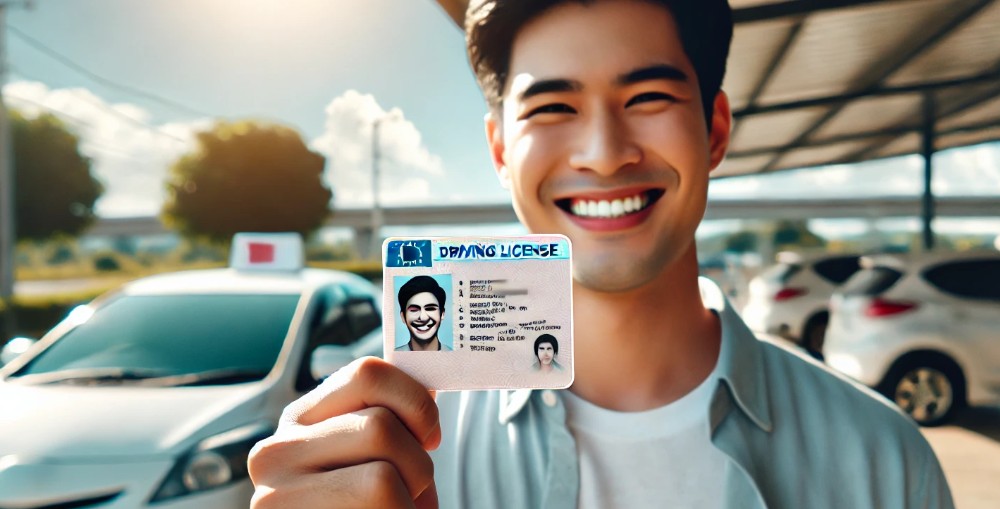Table of Contents
Did you know that failing to renew your UK driving licence on time can lead to legal issues and hefty fines?
Many drivers unknowingly miss their renewal date, putting themselves at risk of penalties and even invalid insurance coverage.
The Driver and Vehicle Licensing Agency (DVLA) has strict regulations on licence validity, and failure to comply could cost you up to £1,000 in fines.
Renewing a driving licence is a straightforward process, yet many motorists delay it due to a lack of awareness or simple oversight.
Whether you drive regularly or not, keeping your licence updated is essential. Understanding the renewal process, associated costs, and potential fines can help you avoid unnecessary trouble.
In this guide, we will explore everything you need to know about UK driving licence renewal fines, how to renew your licence, and what happens if you fail to do so on time.
Why Do You Need to Renew Your UK Driving Licence?

Renewing your UK driving licence is not just a formality, it is a legal requirement.
The DVLA mandates renewal for several reasons, ensuring that all motorists have valid and up-to-date licences.
If you continue driving with an expired licence, you risk fines, invalid insurance, and even legal action.
Key Reasons for Renewing Your Driving Licence
- Legal Requirement: The DVLA requires all drivers to renew their licences at specific intervals.
- Avoiding Fines: Failing to renew your licence can lead to penalties of up to £1,000.
- Insurance Validity: Many insurance providers will not cover claims if the driver has an expired licence.
- Updated Information: Renewal ensures your details, including address and medical conditions, are current.
- Preventing Fraud: A valid licence reduces the risk of identity theft and fraudulent use.
A renewed driving licence also ensures that you meet the latest safety and medical standards required for driving in the UK.
This is particularly important for older drivers and those with medical conditions that may affect their ability to drive.
Keeping your licence updated is a simple yet essential step to staying compliant with UK road laws.
How Often Do You Need to Renew Your UK Driving Licence?
The renewal frequency of a UK driving licence depends on the type of licence you hold and your age.
Photocard driving licences must be renewed every 10 years, while older paper licences remain valid until the age of 70.
Once a driver reaches 70, renewal is required every three years. If you have a medical condition that affects your driving, you may be asked to renew your licence more frequently.
Professional drivers, such as those holding a heavy goods vehicle (HGV) or passenger-carrying vehicle (PCV) licence, may have different renewal timelines.
Drivers should check their licence expiry date to avoid unintentional violations. The expiry date is located on the front of the photocard under section 4b.
The DVLA typically sends reminders before the renewal deadline, but it remains the driver’s responsibility to ensure they renew their licence on time.
What Are the UK Driving Licence Renewal Fines?
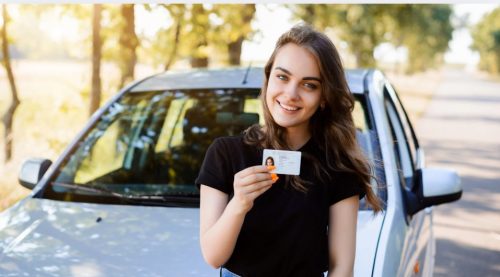
Failing to renew your driving licence on time can result in serious consequences. The DVLA has issued warnings to drivers, stating that an expired licence could lead to a fine of up to £1,000.
If you continue driving with an expired licence, you may face additional penalties, including points on your record and potential legal action.
The police and DVLA actively check licence statuses, and if caught, you could be prosecuted.
Even if you are not driving, keeping an expired licence can lead to administrative fines. If your licence is invalid, your insurance may also become void, leading to further financial risks.
To avoid fines, it is crucial to renew your driving licence before its expiration date.
Can You Be Fined If You Don’t Drive with an Expired Licence?
Many motorists assume that if they are not driving, they do not need to worry about an expired licence. However, this is not entirely true.
The DVLA can still impose fines on individuals who fail to renew their licence, even if they are not actively using their vehicle.
If your expired licence is flagged in their system, you could receive a notification requesting immediate renewal.
Additionally, an expired licence cannot be used as a valid form of identification, which can create difficulties when proving your identity for other purposes.
For individuals who no longer drive but want to keep their licence for future use, it is still advisable to renew it on time to avoid any potential penalties.
How Does an Expired Licence Affect Your Insurance?

Driving with an expired licence can have severe consequences on your insurance coverage.
Insurance providers require a valid licence for a policy to remain active, and an expired licence could lead to claim rejections or policy cancellations.
Many insurers consider an invalid licence a breach of terms, meaning any claims you file while your licence is expired may be denied.
Effects of an Expired Licence on Insurance
- Claim Rejection: Insurance companies may refuse to cover damages if the driver’s licence is invalid at the time of an accident.
- Policy Cancellation: Some insurers may cancel or suspend policies upon discovering the driver does not have a valid licence.
- Higher Premiums: Renewing a policy after an expired licence issue may lead to increased insurance costs due to higher perceived risk.
Even if your expired licence is an honest mistake, your insurer may still treat it as non-compliance. Keeping your licence up to date ensures continuous and hassle-free insurance coverage.
Where and How Can You Renew Your UK Driving Licence?
Renewing a UK driving licence is simple, with multiple options available. The DVLA provides renewal services through its online portal, Post Office branches, and postal applications.
The best method depends on individual preference, urgency, and document requirements.
Renewal Options
- Online: The fastest and easiest method via the gov.uk website, requiring a valid UK passport, National Insurance number, and address history.
- Post Office: Visit a participating Post Office to renew in person. They offer photo-taking services, making it convenient for those needing updated pictures.
- By Post: Complete a D1 application form (available from the Post Office or DVLA website) and send it along with the required documents and fee to the DVLA.
Processing times vary, with online renewals typically completed within a week, while postal applications may take up to three weeks.
To avoid delays, ensure all necessary documents are correctly provided before submission.
How Much Does It Cost to Renew a UK Driving Licence?
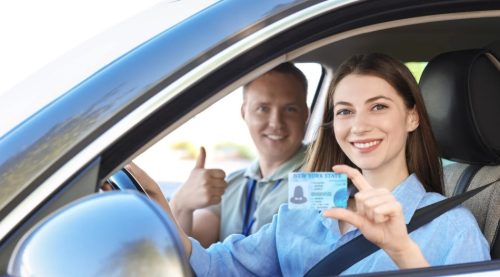
The cost of renewing a UK driving licence depends on the renewal method chosen. Online renewals are the most cost-effective, while using the Post Office or postal services comes with additional charges.
Ensuring timely renewal is essential to avoid penalties or driving with an expired licence, which can lead to fines.
Renewal Fees
- Online renewal: £14 (cheapest and most convenient option)
- Post Office renewal: £21.50 (higher cost due to service fees)
- Postal renewal: £17 (requires additional paperwork)
- Over-70 renewals: Free (but still necessary to renew on time)
Additional charges may apply for optional services, such as passport photo updates or express processing.
Payments for online and postal renewals can be made via debit or credit card, while Post Office renewals may require cash or card payment.
Drivers over 70 can renew their licence for free, but missing the renewal deadline can still result in legal issues.
To stay compliant with DVLA regulations, it’s crucial to track renewal dates and choose the most convenient method to avoid unnecessary costs.
How Long Does It Take to Receive a Renewed Driving Licence?
The time it takes to receive a renewed UK driving licence depends on the renewal method used.
The DVLA processing time for online renewals is typically around one week, provided all documents are in order. This makes it the fastest and most efficient option for most drivers.
For postal applications, the processing time is usually longer, ranging from three to four weeks. Delays can occur if there are missing documents, incorrect details, or additional medical assessments required.
Renewals completed via the Post Office also follow the same timeframe as postal renewals, though they may have additional processing fees.
In some cases, the DVLA may request extra information, such as proof of identity or updated medical records, which could further delay the process.
To avoid unnecessary waiting periods, it is best to apply well in advance of your licence expiry date.
If you do not receive your renewed licence within the expected timeframe, you can contact the DVLA for an update on your application status.
Can You Drive While Waiting for Your Licence Renewal?

If you have applied to renew your UK driving licence before it expires, you may still be able to drive while waiting for the new one to arrive.
The DVLA allows drivers to continue driving under Section 88 of the Road Traffic Act 1988, provided they meet certain conditions.
You can legally drive while waiting for your licence if:
- Your application was submitted before your old licence expired.
- You have not been disqualified from driving.
- You meet the medical fitness requirements for driving.
- The DVLA has not advised you to stop driving.
However, this provision does not apply in every case. If your renewal is delayed due to medical conditions or a pending fitness-to-drive assessment, you may need to stop driving until the DVLA issues a decision.
If you are unsure whether you are allowed to drive while waiting, it is best to check with the DVLA directly or visit their official website for guidance.
What Are the Most Common Mistakes That Delay Licence Renewal?
Many UK drivers experience delays in their licence renewal process due to avoidable mistakes.
Ensuring accuracy in your application can help speed up the process and prevent unnecessary issues.
Common Licence Renewal Mistakes
- Submitting Incorrect Information: Mistakes in personal details, such as name, address, or licence number, can lead to rejection.
- Using an Outdated Photo: The DVLA requires a recent passport-style photo; using an old or incorrect one can cause delays.
- Failure to Pay the Renewal Fee: Online and postal applications require the correct payment, and missing or incorrect payments may result in delays.
- Not Updating Medical Information: If you have a medical condition that affects driving, the DVLA may need additional documents before approving the renewal.
- Applying Late: Leaving renewal to the last minute increases the risk of fines and delays in receiving your new licence.
To ensure a smooth renewal process, always check your application for accuracy and completeness before submitting it.
Using the online renewal system is the quickest and most efficient method to reduce errors and avoid long processing times.
What to Do If Your Licence Renewal Is Rejected?
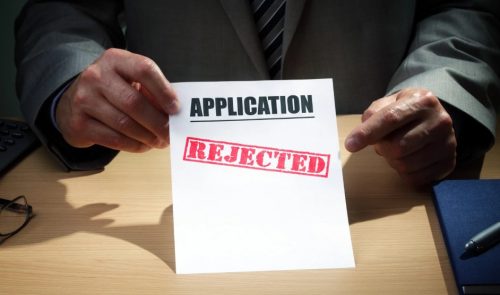
A rejected driving licence renewal can be frustrating, but understanding the reasons behind it can help you resolve the issue.
The DVLA may reject renewal applications due to errors, missing documents, or medical concerns.
Steps to Take if Your Licence Renewal Is Rejected
- Check the DVLA Rejection Letter: The letter will explain why your renewal was unsuccessful.
- Correct Any Errors: If incorrect details caused the rejection, update your application and resubmit it.
- Provide Missing Documents: If supporting documents (ID proof, medical reports, or payment) were missing, send them as soon as possible.
- Undergo a Medical Assessment: If rejected due to medical reasons, you may need to provide additional health records or take a fitness-to-drive test.
- Contact the DVLA for Clarification: If you are unsure why your renewal was rejected, reach out to the DVLA customer service team for assistance.
If your application is rejected multiple times, you may need to appeal or seek legal advice to regain your driving privileges.
What If You Lose Your Licence While Renewing It?
Losing your driving licence during the renewal process can be stressful, but the DVLA has a straightforward procedure to handle such cases.
If you lose your licence before receiving the new one, you must report it lost and apply for a replacement immediately.
You can apply for a replacement online via the DVLA website, by post, or through a Post Office branch. The cost for a replacement driving licence is £20.
If your lost licence was already in the renewal process, it is best to contact the DVLA to confirm the status of your application.
If your lost licence was stolen, you should report it to the police to prevent identity fraud. In such cases, you may also need to provide extra proof of identity when applying for a replacement.
The new licence will usually arrive within one to three weeks, depending on processing times.
How Can You Avoid Fines for Driving Licence Renewal?
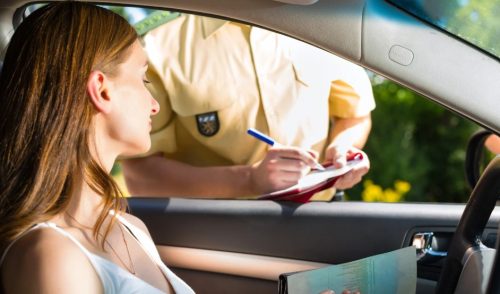
Avoiding fines for an expired UK driving licence is simple if you stay proactive. Many drivers forget to renew their licences, resulting in penalties of up to £1,000.
Tips to Avoid Renewal Fines
- Set a Renewal Reminder: Mark your renewal date on your phone or calendar to avoid missing the deadline.
- Renew Online for Faster Processing: The gov.uk website offers the quickest renewal option with fewer chances of delays.
- Ensure Your Details Are Correct: Inaccurate information can lead to rejection, so double-check your application before submitting.
- Use Official Channels: Avoid third-party websites that may charge extra fees or cause delays.
- Don’t Wait Until the Last Minute: Start your renewal process at least a month before expiry to avoid unexpected issues.
Taking these simple steps can prevent unnecessary fines and keep your licence valid, ensuring you stay legally compliant on UK roads.
What Are the Best Ways to Track Your Driving Licence Renewal?
Once you have applied for your driving licence renewal, it is important to track its progress to ensure timely delivery. The DVLA provides several ways to check your application status.
Methods to Track Your Licence Renewal
- Online Tracking: You can check the status of your application on the gov.uk website using your reference number.
- DVLA Contact Centre: If you applied by post or at a Post Office, you can call the DVLA helpline for an update.
- Email or Postal Updates: Some applicants may receive updates via email or mail, depending on their chosen application method.
If your licence has not arrived within the expected timeframe, it is best to contact the DVLA for further assistance.
Keeping track of your renewal ensures you remain legally compliant and prevents potential fines or driving restrictions.
Conclusion
Renewing your UK driving licence on time is crucial to avoiding fines, maintaining valid insurance, and staying compliant with DVLA regulations.
The renewal process is straightforward, with online, Post Office, and postal options available to suit different needs.
Ignoring renewal deadlines can result in a fine of up to £1,000 and potential insurance complications.
By staying proactive and renewing before your licence expires, you can avoid unnecessary penalties and ensure a smooth driving experience.
Checking your licence expiry date regularly and setting reminders will help you stay on top of renewals.
Keeping your driving licence updated is not just about following the rules, it is about ensuring your legal right to drive safely and responsibly in the UK.
FAQs About UK Driving License Renewal Fines
Is there a grace period for UK driving licence renewal?
No, there is no official grace period. If your licence expires, you must renew it immediately to avoid fines and potential legal consequences.
Can I renew my UK driving licence while living abroad?
Yes, UK expats can renew their driving licence through the DVLA, but the process varies depending on the country of residence and local regulations.
Do over-70s need to take a driving test for renewal?
No, drivers over 70 do not need to take a test, but they must renew their licence every three years and confirm they are medically fit to drive.
Can I renew my driving licence early?
Yes, you can renew your UK driving licence up to 90 days before it expires to ensure you remain legally compliant and avoid any renewal delays.
What happens if I change my name or address during renewal?
You must update your details with the DVLA and provide relevant documents, such as a marriage certificate or utility bill, to reflect the changes.
Are there penalties for providing false information on renewal forms?
Yes, submitting incorrect details can lead to fines, legal action, or even disqualification from driving if found guilty of deliberate misinformation.
How can I contact the DVLA for renewal issues?
You can contact the DVLA through their official website, by phone, or via post to resolve any issues regarding your UK driving licence renewal.




